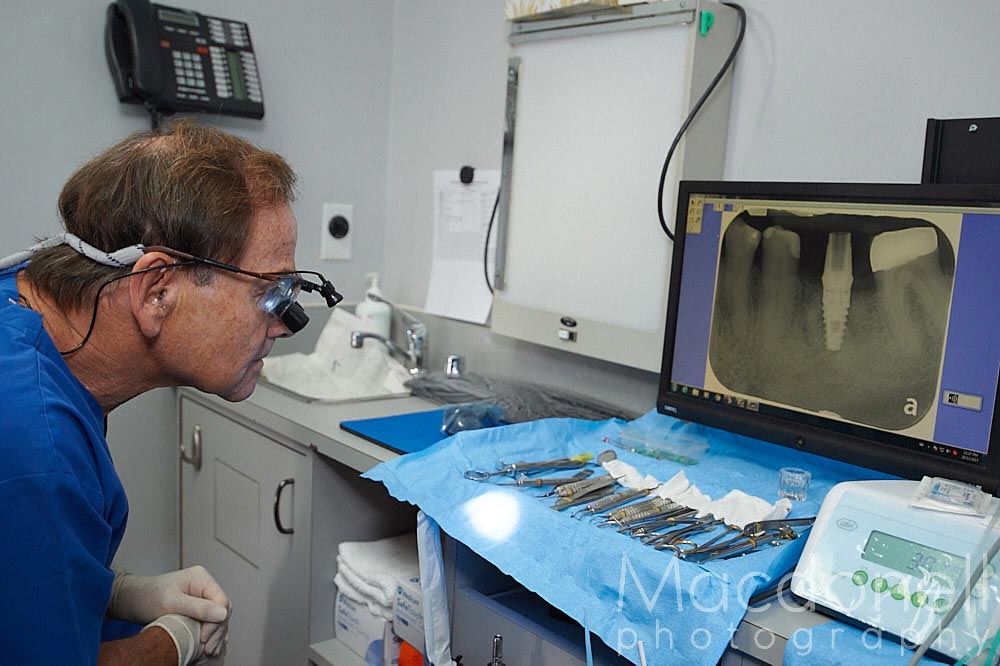Reasons You Might Need Dental Implants
You Have One or More Teeth Missing
The clearest sign that you need dental implants is that you have one or more missing teeth. Dental implants are a permanent way to restore proper function and a pleasant appearance to your mouth.
They are installed in spaces where teeth used to be, by drilling a titanium artificial root directly into the jawbone and adding an implant-supported crown to the top, which recreates the look and form of a normal, healthy tooth. After installation, the jawbone grows around the implant, securing the fit. With proper care, implants can last a very long time.

When you have missing teeth, it can be difficult to eat correctly, and if tooth loss is extensive, it can also make speaking a challenge. Instead, dental implants work exactly like real teeth. They enable you to eat, drink and speak just like normal. You’ll be able to enjoy all your usual activities without having to worry about breaking temporary dental equipment.
You Have Cracked or Broken Teeth
Cracked or broken teeth can be extremely painful. They may also limit your function, making it difficult to chew using the affected teeth. Cracked or broken teeth may also cause anxiety regarding their appearance, and if you have them, you might be reluctant to show off your full smile.
Implants can change all of that. At your consultation, the dentist will review the current status of your teeth, and help you to decide which ones are suitable for replacement. The process of fitting dental implants will be in two stages; extraction and installation.

In the first stage, the surgeon will remove your broken or cracked teeth and prepare the area so it is suitable for a dental implant, using a local anesthetic. You’ll be awake for this procedure, and a sedative can be offered if you require it. Sometimes, in favourable situations, implant installation can occur at the same time.
Once the installation is complete, you’ll recover fully over a period of three to nine months, as this is how long it takes for the jawbone to fuse with the implant. However, you’ll have function back within a few days.
You Find Dentures Uncomfortable
If you already have missing teeth, you might have been fitted with a temporary, removable piece of equipment like a denture. This type of treatment is a good option for people who are unsure about having more extensive dental surgery, but there can be inherent issues.
A lot of people find that, even if they use a good-quality adhesive, dentures tend to slip. This can make eating and speaking difficult and may cause embarrassment if the denture becomes loose while socializing or completing everyday tasks.

It is for this reason that dental implants provide a vast improvement in both function and appearance to people who have formerly used dentures. Instead of having to worry about a good fit or the best adhesive, patients with dental implants can enjoy the form and look of their natural teeth again.
Your periodontist will be able to advise whether you are a good candidate for dental implants. They will take an x-ray, check the health of your gums, and assess the quality of your surrounding teeth. If you have other teeth that might require very extensive treatment or extraction, your periodontist may advise having implants as replacements for those teeth too.
You Have an Infected Tooth
Infected teeth can be extremely painful, and often indicate that there is a more serious structural issue at play. Bacteria tend to enter through cavities or other fissures in the teeth and can take hold quickly, causing infection, pain, and sometimes even abscesses.
If this has happened to you – particularly if it’s occurred more than once – it’s a sign that the tooth is no longer can healthy, nor can it be protected by the surrounding gum tissues. Replacement becomes a worthy solution in these circumstances.

Your dentist will assess whether the tooth is irrevocably damaged and if cavity treatment is no longer going to effective. If so, they may recommend having dental implants. This will mean that you won’t have to have further patch fixes for cavities; instead, your infected teeth will be replaced by permanent fittings that restore function and – once you’ve recovered – eliminate the pain of your old teeth.
Your Face is Beginning to Take on a Sunken Appearance
Your teeth are part of a more comprehensive bone structure that supports the shape of your face. As you get older, bone loss can alter your appearance. When teeth are present, they promote bone growth in the jaw, but if teeth are lost and dentures used instead, there’s nothing within the jaw to prompt it to continue growing.
Because of this, people who use dentures tend to have a sunken facial appearance, particularly when teeth have been missing for a long time. Opting for dental implants encourages the jawbone to continue growing, no matter how old you are. This protects the structure of the face, allowing you to look youthful even in older age.
Our mission
It is the mission of this office to provide our patients with the highest level of excellence in oral health care.
Our team is thoroughly committed to excellence for our patients; you’ll be treated with dignity and respect in a trusting, open, honest environment and the confidential nature of your personal information will be recognized and respected.
Decisions are made with our patients on the basis of consensus, valuing diversity of opinion, in an environment that fosters mutual respect.

